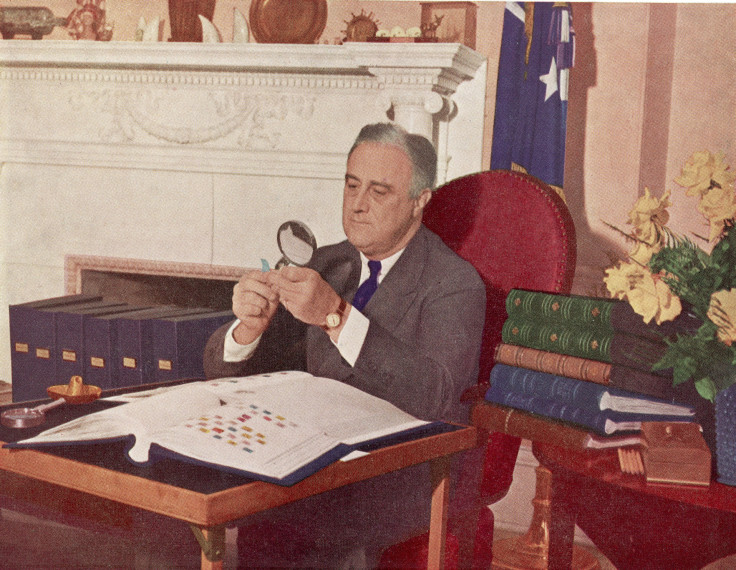Can A Disabled Person Become President? List Of Physically Impaired US Leaders

Who can forget President Donald Trump and former Secretary of State Hillary Clinton verbally attacking each other during the 2016 election, using physical weaknesses as grounds to try and disqualify their opponent from the presidential race? However, in reality, a person cannot be barred from being elected United States’ president based on his or her physically disabilities alone.
“No Person except a natural born Citizen, or a Citizen of the United States, at the time of the Adoption of this Constitution, shall be eligible to the Office of President; neither shall any Person be eligible to that Office who shall not have attained to the Age of thirty five Years, and been fourteen Years a Resident within the United States,” states the Presidential eligibility criteria.
The Presidential eligibility clause stresses only on officeholder's age (which should be 35 years or older,) residency (be a U.S. resident for more at least 14 years) and citizenship (be a "natural born citizen").
The constitution does not list the issue of disability as a deal-breaker when it comes to being elected the leader of the free world. It would be pertinent to note while there haven’t been many presidents with severe physical disabilities in the recent U.S. history, who have carried out their terms in the Oval Office, a number of them have suffered from minor disabilities, local news outlet Ottawa Herald reported.
The only exception was former President Franklin Delano Roosevelt (FDR) who was struck with a paralytic form of polio when he was 39 years old. Nevertheless, FDR, who took the office at the age of 51, didn’t let his disability stop him from travelling around the globe and inspiring millions by radio addresses called “fireside chats.”
However, FDR made all possible attempts to hide the extent of his disability. He had struck a deal with the media to not photograph him in his wheelchair and avoid mentioning his disability.
There were other former U.S. presidents also with one or more minor disabilities. According to Inc, it is largely believed George Washington had dyslexia, a learning disability. Washington continued to work toward improving his condition and went on to become the Commander-in-Chief of the Continental Army during the American Revolutionary War, the first President of the United States of America and ultimately, the father of the nation.
Washington was not the only POTUS to suffer from dyslexia. Presidents such as Thomas Jefferson, Woodrow Wilson, Dwight D. Eisenhower and John F. Kennedy suffered from different variations of the learning disability.

Apart from them, James Madison, who is famously referred to as the "Father of the Constitution," battled epilepsy his entire life; Abraham Lincoln was rumored to suffer from Marfan's Syndrome, a genetic disorder that affects the connective tissue, causing visual difficulties and heart problems; Theodore Roosevelt suffered from an array of disabilities including nearsightedness and severe bronchial asthma that stunted his growth; Ronald Reagan was nearsighted and had hearing deficiency that forced him to wear a hearing aid during his presidency; William Jefferson Clinton dealt with a high-frequency hearing impairment for a long time before getting a hearing aid in 1997.
The physical disabilities never stopped these presidents from leading the country to the best of their abilities. Furthermore, Article II, Section 1, Clause 6 of the U.S. Constitution’s 25th Amendment states in case of a sitting president’s “inability to discharge the powers and duties of the said office, the same shall devolve on the Vice President.”
Although the description of the term “inability” has largely been scrutinized by political scholars over the years, without deriving at any definite answer, it is presently understood to mean physically “incapacitated.” This law had been evoked once by Reagan and twice by George W. Bush during their presidencies, according to Constitution Center.
© Copyright IBTimes 2025. All rights reserved.






















